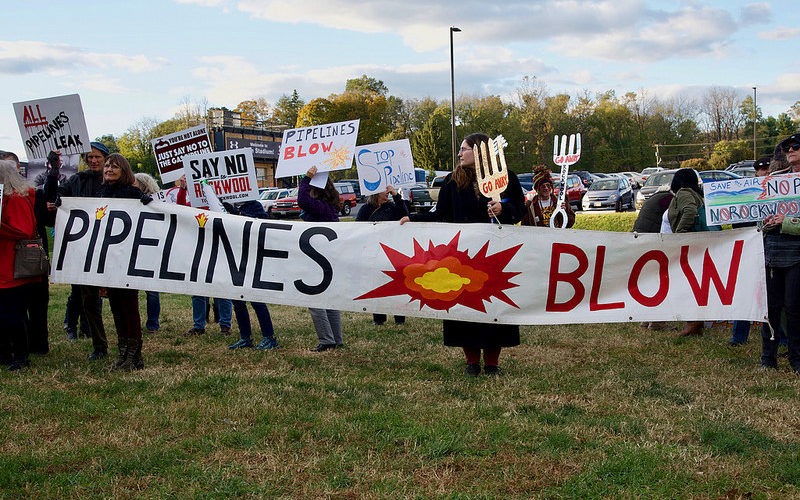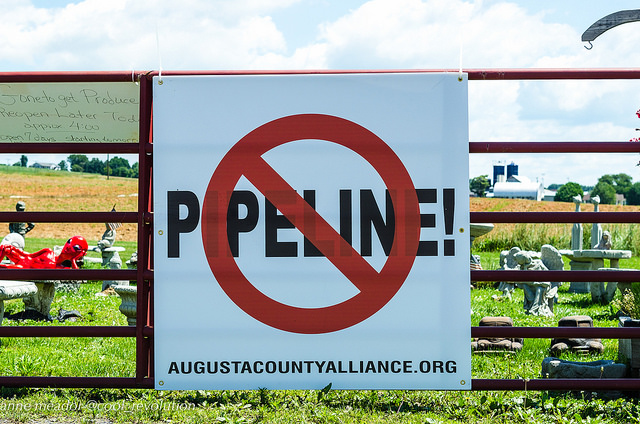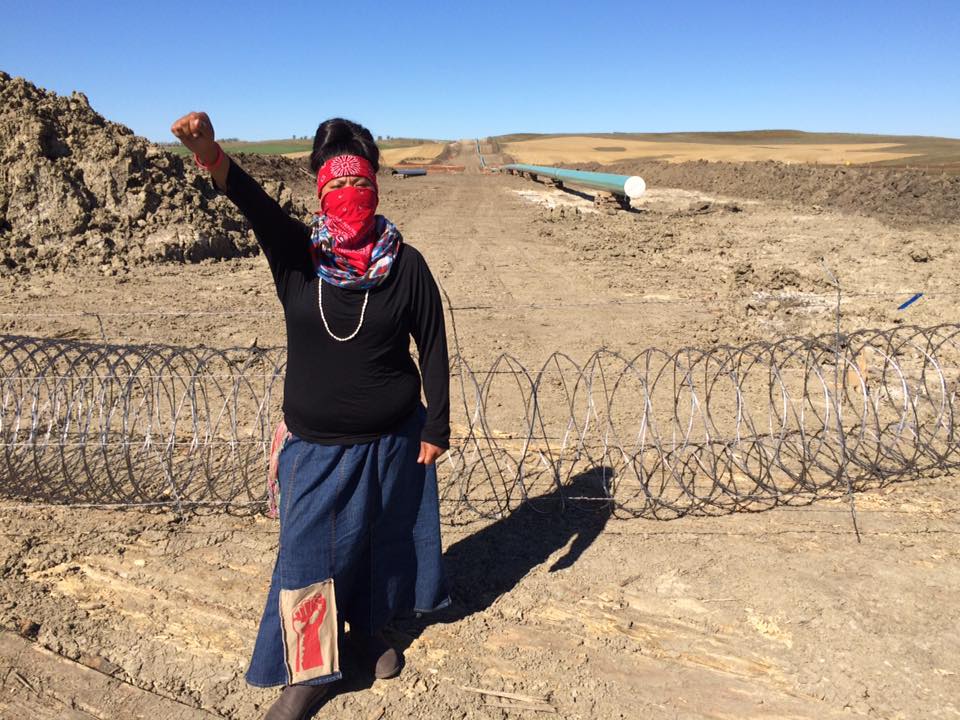After cancelling a public hearing last month on a permit for an extension of the Mountaineer Gas Pipeline, the West Virginia Department of Environmental Protection (DEP) appears to be waffling on setting a new date–and the people who asked for a hearing are growing impatient.
The proposed 4.85-mile distribution line would run from the Washington Trails subdivision in Berkeley County to the Rockwool site in Jefferson County. The pipeline has been contentious because of its role in providing fuel gas for the insulation fiber manufacturing plant. It is just one piece of infrastructure intended to service Rockwool and a 1,000-acre industrial park in Jefferson County.
Mountaineer Gas applied to the DEP for a Stormwater Construction Permit for the Rt. 9 extension. A large number of people requested a public hearing on the application because of its connection to Rockwool and complaints about construction of the trunk line in Morgan and Berkeley Counties.
A public hearing was set for February 21, 2019 at the Ranson Civic Center and was advertised by WV DEP in the Martinsburg Journal. The Civic Center double-booked for that date, and the hearing was cancelled and never officially re-scheduled. Tracy Cannon of Eastern Panhandle Protectors, a group which requested the public hearing, says DEP officials told her at the end of January that the hearing would be re-scheduled to February 20, but the new date was never publicized by DEP. On February 17, Cannon says she was notified that no hearing would take place on February 20 after all. She says she has been calling DEP frequently since to see if a public hearing on the extension permit will be set.
A public hearing is important, she says. “Citizens need to be heard about this pipeline. This pipeline would not just allow for Rockwool to be built, it would also allow the neighboring properties to bring in some form of heavy industry that also uses fracked gas,” she told DC Media Group.
Opponents of the pipeline extension are also concerned about stormwater from the construction areas increasing sediment in local creeks and flowing into the Potomac River. They also cite the possibility of groundwater contamination through the numerous sinkholes in the area.
As weeks pass without a new hearing, she fears those who want a public hearing are being given the run-around by DEP. Cannon says that Rick Adams, a DEP contact, told her today that DEP was no longer planning to schedule a public hearing, but he walked back that statement in a second phone call, which she recorded.
“No one to my knowledge has decided not to have a public hearing. I just don’t know what’s taking so long,” Adams said.
Adams, however, expressed doubts about the necessity of a public hearing, pointing out that the project in his view doesn’t meet the conditions that would mandate one. “The last time I talked to the folks they were going to reschedule a hearing in a different location, but I’m just wondering, why they’re even having it. What I’m suggesting that they do is to go ahead and notify anyone and extend the public comment period,” he said.
In his conversation with Cannon, Adams also hinted at concerns at DEP about providing security at a public hearing. Asked by Cannon if he thought they were having trouble finding a venue, he replied, “Yeah, I think that’s what it is.”
“They can’t find an appropriate place to have it, especially since we feel like, you know, well, I’ll not go into the details, but, you know, of the people that, you know, what had happened, that they said they could not guarantee their safety,” he continued.
Asked about his statements regarding “safety” and “what had happened,” Adams told DC Media Group that he “misspoke” and had never heard anyone at DEP saying they couldn’t guarantee anyone’s safety.
“I have never been concerned about my safety. Nothing has ever been said to me that there’s a reason to be concerned,” he said.
Adams emphasized that he doesn’t have the authority to schedule public hearings. “In my opinion, this permit never did meet the threshold to have a hearing,” he said.
DEP Public Information Specialist Terry Fletcher has not yet responded to request for comment.
If the pipeline extension is built, there are questions about where the gas it would deliver would come from. The intended transmission line to feed the Mountaineer Gas Pipeline had been TransCanada’s Potomac Pipeline, a 3.7-mile conduit from Pennsylvania through Maryland and across the Potomac River, but, in January, the Maryland Board of Public Works denied it access through public land. TransCanada may appeal that decision in court.
Adams’ hints about safety being a concern at a hearing venue come at a time when accusations of dangerousness have been thrown back and forth between factions for and against Rockwool as a way to discredit the other side.
Jefferson County Prosperity–a recently formed pro-Rockwool group composed of former Development Authority officials who resigned and the owner of a utility providing water service to Rockwool–has used Trumpian tactics to stir the pot. Consistently portraying anti-Rockwool residents as “extremists” and “radicals” in social media posts, JCP often makes inflammatory assertions of dangerous and volatile conduct by Rockwool opponents, most of which are either absurd or easily disprovable. For example, JCP alleged that Charles Town Mayor Scott Rogers had to be restrained by the sheriff at a City Council meeting and that Resist Rockwool demonstrators intimidated staff in Senator Joe Manchin’s office when video shows otherwise.
Rockwool opponents point to threatening comments by JCP supporters on its Facebook page which the administrators have not removed or do not remove promptly. “Then we all need to show up. When they start their violent actions like they always do. We just beat them to death. Problem solved,” one Facebook comment reads.
 Mayor Scott Rogers ordered additional security at city council meetings, in part because of the JCP Facebook page vitriol, he said. For its part, Resist Rockwool has publicly thanked police officers for “putting themselves in harm’s way” and protecting their rights at meetings.
Mayor Scott Rogers ordered additional security at city council meetings, in part because of the JCP Facebook page vitriol, he said. For its part, Resist Rockwool has publicly thanked police officers for “putting themselves in harm’s way” and protecting their rights at meetings.





